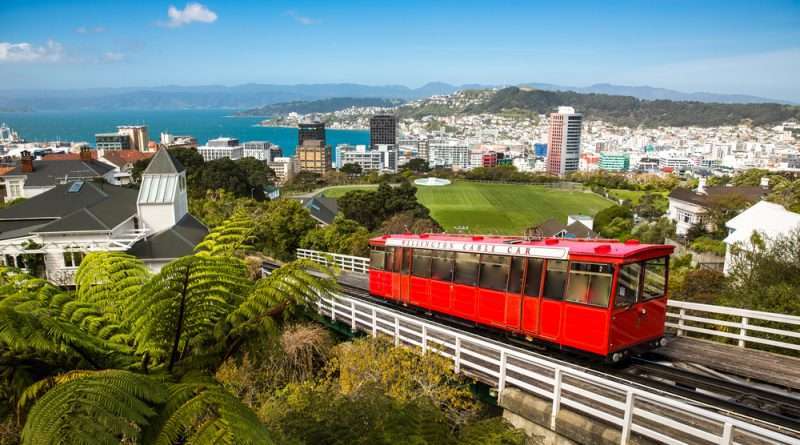Sustainable Tourism in Paradise: Eco-Friendly Travel in New Zealand
New Zealand, often referred to as a paradise on earth, is renowned for its stunning landscapes, diverse ecosystems, and rich cultural heritage. As travelers increasingly prioritize sustainability and environmental responsibility, eco-friendly travel has emerged as a key trend in the tourism industry. In New Zealand, a commitment to conservation, community engagement, and sustainable practices has transformed the way visitors experience the country’s natural wonders. In this article, we delve into the world of sustainable tourism in New Zealand, exploring eco-friendly travel options, initiatives, and practices that allow travelers to explore paradise while minimizing their environmental footprint.
Conservation and Preservation of Natural Heritage
At the heart of sustainable tourism in New Zealand is a commitment to conservation and preservation of the country’s natural heritage. From the towering peaks of the Southern Alps to the pristine beaches of the Abel Tasman National Park, New Zealand’s landscapes are home to unique and fragile ecosystems that require careful stewardship. Conservation efforts led by government agencies, NGOs, and local communities aim to protect biodiversity, restore habitats, and mitigate the impacts of tourism on sensitive environments. Initiatives such as predator control programs, reforestation projects, and marine sanctuaries ensure that future generations can continue to enjoy the beauty and diversity of New Zealand’s natural landscapes.
Eco-Friendly Accommodations
Eco-friendly accommodations are an essential component of sustainable tourism in New Zealand, offering travelers the opportunity to stay in environmentally responsible lodgings that minimize their carbon footprint. From eco-lodges and wilderness retreats to sustainable resorts and eco-friendly holiday parks, there are a variety of options available for eco-conscious travelers. These accommodations prioritize energy efficiency, water conservation, waste reduction, and local sourcing of materials and supplies. Many eco-friendly lodgings also offer educational programs and activities that raise awareness about environmental issues and promote sustainable living practices among guests.
Responsible Wildlife Encounters
New Zealand is home to a diverse array of wildlife species, many of which are endemic and found nowhere else in the world. Responsible wildlife encounters allow travelers to observe and appreciate native fauna in their natural habitats while minimizing disturbance and harm. Guided tours led by experienced naturalists and wildlife experts provide opportunities to encounter iconic species such as kiwi birds, dolphins, seals, and albatrosses while learning about conservation efforts and the importance of protecting fragile ecosystems. By adhering to ethical guidelines and best practices, travelers can ensure that their wildlife experiences contribute to conservation and respect the welfare of animals.
Sustainable Transportation Options
Transportation plays a significant role in the environmental impact of tourism, and sustainable transportation options are essential for minimizing carbon emissions and reducing pollution. In New Zealand, eco-friendly transportation options abound, from electric buses and hybrid vehicles to bicycles, electric scooters, and walking tours. Travelers can explore cities, towns, and scenic routes using public transportation, ride-sharing services, and eco-friendly tour operators that prioritize fuel efficiency and emissions reduction. Additionally, initiatives such as carpooling, bike-sharing programs, and carbon offsetting schemes enable travelers to minimize their carbon footprint while exploring the country’s breathtaking landscapes.
Community Engagement and Cultural Experiences
Sustainable tourism in New Zealand goes beyond environmental conservation to include community engagement and support for indigenous cultures and traditions. Maori-owned tourism operators offer authentic cultural experiences that provide insights into Maori customs, traditions, and way of life. Visitors can participate in cultural performances, traditional ceremonies, and guided tours of marae (meeting grounds), gaining a deeper appreciation for Maori culture and history. Additionally, community-based tourism initiatives empower local communities to benefit from tourism by offering homestays, cultural workshops, and artisanal experiences that provide economic opportunities and preserve cultural heritage.
NEW ZEALAND VISA FOR US CITIZENS
Responsible Tourism Practices
Responsible tourism practices are essential for minimizing the impact of tourism on local communities, cultures, and environments. Travelers can contribute to sustainable tourism in New Zealand by practicing responsible behaviors such as reducing waste, conserving water and energy, supporting local businesses, respecting cultural norms and traditions, and leaving natural areas as they found them. By choosing eco-friendly accommodations, participating in eco-certified tours and activities, and offsetting their carbon footprint, travelers can make a positive difference and support the long-term sustainability of New Zealand’s tourism industry.
Conclusion
In conclusion, sustainable tourism in New Zealand offers travelers the opportunity to explore paradise while minimizing their environmental footprint and supporting conservation efforts, community engagement, and cultural preservation. From eco-friendly accommodations and responsible wildlife encounters to sustainable transportation options and community-based tourism initiatives, there are countless ways for travelers to embrace eco-friendly travel practices and contribute to the long-term sustainability of New Zealand’s tourism industry. By prioritizing conservation, responsible tourism practices, and cultural authenticity, travelers can make a positive impact and ensure that future generations can continue to experience the wonders of paradise in Aotearoa, the Land of the Long White Cloud.
Also read: Maori Culture and Commerce: Embracing Tradition in New Zealand Business



